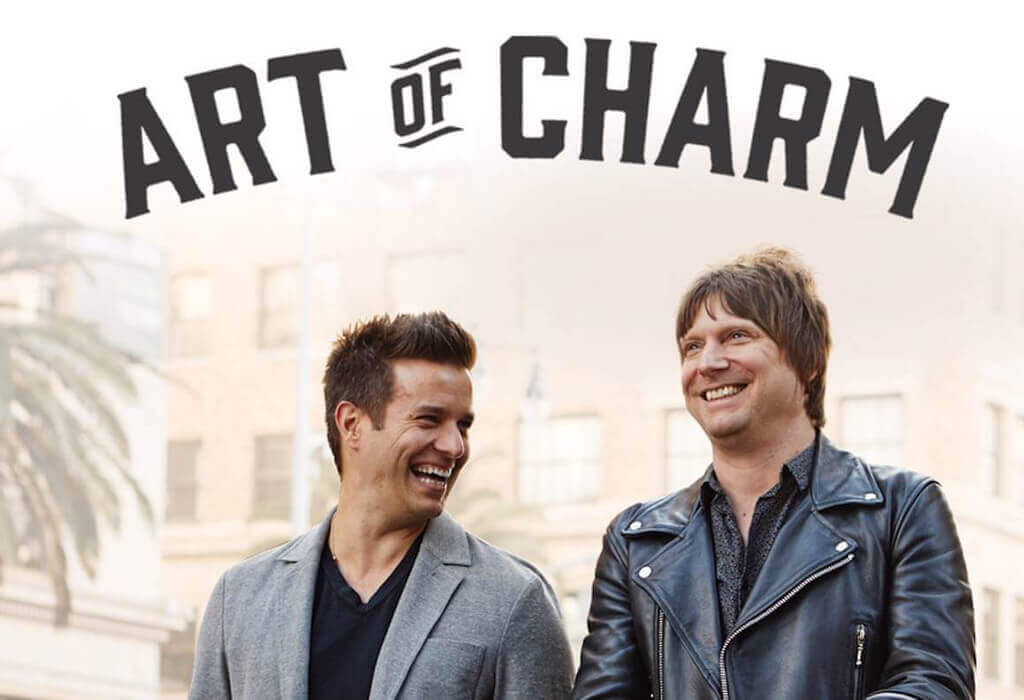 The New Year is a funny holiday.
The New Year is a funny holiday.
It’s an incredibly powerful moment to self-reflect, recalibrate and set a plan for the year ahead.
And it’s also completely arbitrary.
We’re not going to talk about how to make New Year resolutions, because it’s all in vain. As much as we like to celebrate new beginnings here at The Art of Charm, there’s definitely something strange about building your transformation around this one random day in the year.
Which is not to say that it isn’t useful. Any opportunity to self-reflect and improve is excellent and should be welcomed. But the tradition of looking at yourself, setting goals and planning for a better future on this one culturally defined holiday? That’s totally arbitrary.
And it often leads to some bad thinking.
Like the idea that something magical happens on New Year’s Day.
That starting January 2, all the right behaviors, thoughts and decisions will suddenly kick in, and everything will start getting better, and all those patterns and instincts from the year before will fade away, because that was last year.
When in reality, no new behaviors emerge, fully formed, as if they’ve been waiting for this one holiday to come out. No new goals develop, as if you just needed a fresh start to see them clearly. Your friends won’t change, your job won’t change, your apartment won’t change, because none of these things are waiting for the New Year.
What they’re really waiting for is you. And you don’t need to wait for a holiday to make these changes come to life.
So if the New Year is a random convention, and it doesn’t generate any magical results in its own, then it’s not really the holiday that makes us better, but what we do with the holiday.
Which means that any day can be our own personal New Year. Today is a new year. Tomorrow is a new year. Each day marks the first day of a new 365-day cycle.
And every one of those days can be as transformative as January 1, if we choose to see it for the new beginning that it is. Let’s not confuse the date for the event.
Because fresh starts aren’t hard to come by. They’re everywhere. The moment you decouple your self-improvement from a particular holiday, every day is a holiday. Every day is your holiday.
And your transformation can begin on any one of those days. So if you’re wondering how to make New Year resolutions, the time to get it done is right now.
But if something’s going to change in your life, it’s going to change because you’ve stopped on that day and asked: Who do I want to be?
Otherwise, the New Year has a peculiar way of messing with our minds.
The seductive logic of a New Year is that anything you do leading up that day will be forgiven, because you’ll be better in the new year. And everything you do after the new year will make up for what you did last year.
That’s why people drink, eat and party more during the holidays. That’s why they take their foot of the pedal at work, and spend more money at bars, and drop into a Netflix binge when they should be sending out job applications. Because all will be forgiven after the holiday.
In other words, the New Year turns us into two different people.
One of those people is “bad,” and the other is “good.”
The bad one is in the past, and the good one is in the future.
And in between them is you, trying to shake off the “bad” person you still are, knowing you should already be the “good” person you want to become.
And basically you’re still the same person, only projected backwards in the past (I really should have been hitting the gym this whole time) and forwards in the future (Starting next year I’ll be a machine).
That mentality—of being simultaneously in the past and in the future, and so totally absent in the present—is the syndrome that keeps us stuck where we are. It pretty much captures the human condition, and it’s what many of our students finally confront when they finally decide to do something about it.
That’s the mindset that keeps us locked in our existing patterns, that tells us we probably need help to become extraordinary, but that we can put it off till next week, next month, next year.
Next year comes, and the script is the same: more frustration about the past, more wishing for the future. It’s the place most people who don’t do something about it tend to stay, split into two people and never getting where they want to go.
And when you think of it that way, you can see why a holiday like the New Year would be so attractive to us.
It’s a rationalization for the worst kind of behavior, and yet another reason to beat ourselves up when that behavior doesn’t change.
It’s a device to keep us minimally motivated, but generally uncommitted to results.
It’s a socially acceptable point in time to locate your transformation, but without the plan and accountability to actually fulfill it.
And it lines up our self-improvement schedule with the rest of society’s (“So what are your New Year’s resolutions?”), which probably gratifies some tribal instinct in us, but in this day and age only makes us as noncommittal as the next guy.
To borrow an old but very wise saying, today is the first day of the rest of your life.
And that day will always be today. And tomorrow. And the day after that, and the day after that.
In other words, it’s always “January 1.”
Which means that every single day you have the opportunity to become the person you want to be.
Which also means that if today wasn’t that day, no problem. You always have tomorrow.
Tomorrow, which is just as perfect a day to begin as today.
But wait, you’re probably thinking. Didn’t you just say that we need to stop putting things off? That we need to stop living in the future? Isn’t that the same problem as waiting until the New Year to become better?
Is it? Great! Then you’ve confronted the illusion that tomorrow will be a better time to start than today. Nicely done. Today is your day.
As T.S. Eliot wrote:
What we call the beginning is often the end
And to make and end is to make a beginning.
The end is where we start from.
But if you find yourself putting off your goals for another day, then you’ve got another chance tomorrow. That’s perfectly fine—in fact, it’s great. Forgive yourself for yesterday. Celebrate today. You’ve broken the syndrome of waiting until next year. That’s how to make a New Year resolution.
Because as much as I push my students to be better, faster, stronger, I truly believe that beating yourself up is just as unhelpful as waiting until the future to get better.
If you think about it, those two behaviors—beating yourself up for the past while projecting your ideal self into the future—are just two sides of the same coin, which is inaction. They both give you something to do (blame or fantasize) instead of just getting better.
In other words, they’re both equally compelling ways to avoid the fact that today is your new year.
For some people, this can go on for years. For others, it goes on forever.
But if you’re reading this, and seeing for the first time how seductive the past/future, blame/fantasize syndrome can be, and feeling like you want to break that pattern, and say this is my day, and maybe it’s time to do something about it—
Then congratulations.
You’re celebrating the new year.
Which is today, and will always be today.



